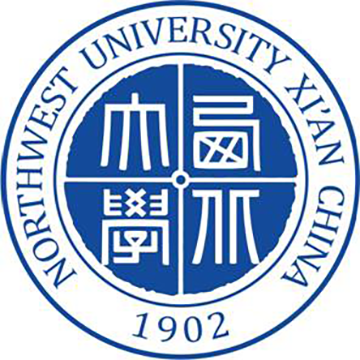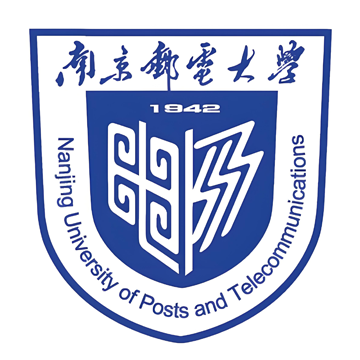
 Introduction
IntroductionNorthwest University (NWU) can trace its origins back to Shaanxi Imperial College and Peking Imperial College in 1902. The University received its current name in 1912, and was renamed Northwest National University in 1923. With institutions such as Peking National University, Peking National Normal University and Beiyang National Engineering College, which moved inland to Shaanxi province when the War of Resistance against Japan broke out in 1937, the University merged to form Xi’an National Provisional University. It was then renamed Northwest Associated University in 1938 and regained the name Northwest National University in 1939.
In the early years after the founding of the People’s Republic of China, Northwest University was a comprehensive university under the direct jurisdiction of the Ministry of Education. In 1950, the University was renamed Northwest University. In 1958, NWU came under the administration of Shaanxi province. In 1978, NWU was designated as one of the national key universities. NWU has been selected among the first group of the universities with first-class disciplines and the leading universities sponsored by the national “211 Project”. It also enjoys national support from the “One University for One Province Initiative”.
Over the years, following its vision of “promoting the national spirit, integrating the ideas from around the world and shouldering responsibility of developing northwest China” and its motto of “Fairness, Integrity, Diligence and Simplicity”, NWU has attracted a generous number of distinguished scholars, cultivated generations of talents, made a series of significant academic achievements and enjoyed high academic and social reputation. NWU has been honored as “the Mother of Chinese Petroleum Engineering”, “the Cradle of Economists” and “the Cradle of Writers”.
 About the Program
About the ProgramProfessional Overview
Electronic Information Science and Technology is an undergraduate major in regular institutions of higher learning in China, belonging to the category of electronic information. The duration of study is four years, and it confers a Bachelor of Science or a Bachelor of Engineering. This major mainly studies the basic knowledge and skills in electronics, information technology and computer science, covering multiple fields such as modern electronic technology, modern communication technology, computer technology and network technology. Its predecessor can be traced back to the Radio Physics and Electronic Physics majors of the Department of Physics at Peking University in 1958, and it was officially included in the "Directory of Undergraduate Programs in Regular Institutions of Higher Learning" in 1998.
Training objectives
The aim is to cultivate advanced theoretical and technical talents who can adapt to the rapid development of electronic information science, possess a good knowledge structure and adaptability, and be capable of engaging in design and manufacturing, scientific research and development, applied research and technical management in related fields such as electronic technology, electronic information science and electronic information industry.
Curriculum Design
General knowledge: including courses such as advanced mathematics, engineering mathematics, college physics, foreign languages, and fundamentals of computer culture.
Basic knowledge of the discipline: covering communication principles, digital signal processing, communication circuits and systems, electromagnetic fields and waves, semiconductor physics, etc.
Core courses: Including Fundamentals of Analog Circuits, Electromagnetic Field and Wave Technology, Sensor Technology and Application, Principles of Single-Chip Microcomputer Systems, Digital Circuit Logic Design, High-Frequency Electronic Circuits, DSP Technology and Application, Optical Fiber Sensing Technology, Embedded Systems, Communication Technology, etc.
Practical teaching: It includes experimental courses, course design, internships, graduation design (thesis), etc. There will also be engineering and technical training such as electronic technology internships and metalworking internships.
 About Northwest University
About Northwest UniversityThe predecessor of the School of International Education at Northwest University was the School of International Cultural Exchange, established in 1992. In 2014, the school established the Central Asia College and shared office space with the International Cultural Exchange College. In 2017, the "Study Abroad at Xi'an University" project was implemented, focusing on improving the quality and efficiency of international student training, and striving to create distinctive projects and educational brands. In November 2018, the school implemented a departmental reform, merging the former International Department with the International Cultural Exchange College to establish the International Cooperation Department (International Education College).
The School of International Education is responsible for the enrollment, daily management, logistics services, teaching Chinese as a foreign language, discipline construction, and scientific research of international students. Specifically, it is responsible for the enrollment application, registration, Chinese language teaching, student status and scholarship management, accommodation management, cultural exchange activities, internships and employment, alumni liaison, mental health development, and assisting international students in visa applications, insurance purchases, and other affairs. At the same time, by creating a national education curriculum system and a series of brand cultural activities such as the "Northwest University International Cultural Festival," "Learning from the Sages as Exchange Ambassadors," and "Han Tang Culture Special Feature Experience Camp," we aim to build bridges and platforms for international students to gain a deeper understanding of China, Xi'an, and Xi'an University, leading them to become practitioners of Xi'an University's spirit, disseminators of Chinese culture, and promoters of international friendly cooperation and exchange.
The college has departments including the College Office, International Student Enrollment Office, International Student Management Office, Chinese Culture Department, Professional Project Department, and International Student Logistics Service Center. There are currently 15 full-time teachers of Chinese as a foreign language, 17 management cadres, and 19 external and logistics service personnel. The college actively assists and supports multiple departments and majors in offering fully English taught programs, which currently cover undergraduate programs in international trade, master's programs in international law, and multiple doctoral programs.
 Accommodation
Accommodation| Types | RMB/Year(perperson) | RMB/Semester(perperson) | RMB/Day(perperson) | Equipments | |
| Type 1 | Triple Room | 4000 | 2300 | —— | Public facilities: kitchen, bathroom,washing machineRoom facilities:furniture, AC,central heating in winter |
| Double Room | 6500 | 3500 | —— | ||
| Type 2 | Triple Room | 3600 | 2100 | —— | Public facilities:bathroom.washing,washing machineRoom facilities:furniture, AC,centralheating in winter |
| Double Room | 5500 | 3000 | —— | ||
| Type 3 | Double Room | —— | —— | 40 | Public facilities:washing machine Room facilities:furniture,AC,centralheatingin winter, bathroom |
 Fees
Fees Admissions Process
Admissions Process  Entry Requirements
Entry RequirementsAbove 18 years old and under45 years old
Hold a M.A.or above
Chinese-Taught:180HSK Score (Level5)English-Taught:Atleast TOEFL 80 OrIELTS 6.02 Recommendation Letters
 Application Materials
Application MaterialsScholarship Application Form.
NWUApplication Form forInternational
Students.
CompletedOriginalPhysicalExaminationRecordforForeigners.ThephysicalexaminationmustcoverALLtheitemslistedin form.
Original HighestDiplomaanditsNotarizedCopies(Prospective diplomawinners mustsubmitofficialcertificate from their currentuniversity/school).
Original Transcripts in the latest study periodsuchasundergraduateorgraduate period onesand their notarized copies.
Certificate ofLanguage Proficiency.
PhotocopyofValid OrdinaryPassport.
Two Recommendation Letters in English orChinese.
AStudyPlanorResearch Proposal in Englishor Chinese.
Research Achievements.Applicants
 Reviews
Reviews Scholarship
Scholarship
Nanjing University of Posts and Telecommunications
Tuition
Start Date